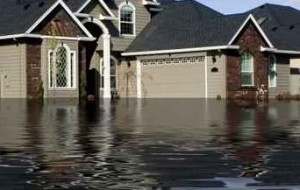Flood zones are land areas identified by the Federal Emergency Management Agency (FEMA). Each flood zone describes that land area in terms of its risk of flooding. To identify a community’s flood risk, FEMA conducts a Flood Insurance  Study. This study includes statistical data for river flow, storm tides, hydrologic/hydraulic analyses, and rainfall and topographic surveys. All of this information is used to create what is known as FIRMs (Flood Insurance Rate Maps). This is used to not only rate areas in terms of flood risk but also to determine the resulting flood insurance rates.
Study. This study includes statistical data for river flow, storm tides, hydrologic/hydraulic analyses, and rainfall and topographic surveys. All of this information is used to create what is known as FIRMs (Flood Insurance Rate Maps). This is used to not only rate areas in terms of flood risk but also to determine the resulting flood insurance rates.
The important thing to remember however is that everyone lives in a flood zone-it’s just a matter of knowing whether you are in a more dangerous zone or a relatively low-risk zone. Another thing to remember is that buying a home in a flood zone (depending on the level) does not necessarily mean that it will flood…it is only a measure of the likelihood of the event.
Now to describe and define the three types of flood zones: In high-risk areas, there is at least a 1 in 4 chance of flooding during a 30-year mortgage. In moderate-to-low risk areas, the risk of being flooded is reduced but not completely removed. In these areas, it is not necessary to have flood insurance for your home but it is still recommended. There are also undetermined-risk areas. No flood-hazard analysis has been conducted in these areas, but a flood risk still exists.
So the question remains, should you worry about your home flooding? Floods are reportedly the most common natural disaster in the US and everyone can experience one in their home-owning career. Floods are not just limited to coastal areas or as a result of tropical storms. The unthinkable scenarios such as heavy snows melting, flash floods, Dams/levees (as in New Orleans during Katrina), or construction and development can all lead to flooding. Thus, everyone should think about and consider getting some type of flood insurance, especially if you live in a moderate to high-risk area. It is very important when moving to look up your area’s flood map and to adequately assess whether or not flood insurance is something you want to consider. The answer to the question is yes, you should be concerned enough to do some preliminary research and make an informed decision.
Now having armed you with this knowledge, go forth and learn more about flood zones…but only if you really want to!
If you enjoyed reading this post you will find the main Mover’s Atlas site even more Interesting! There you can discover important information about what surrounds your current or future Florida home, give it a look: Mover’s Atlas.



